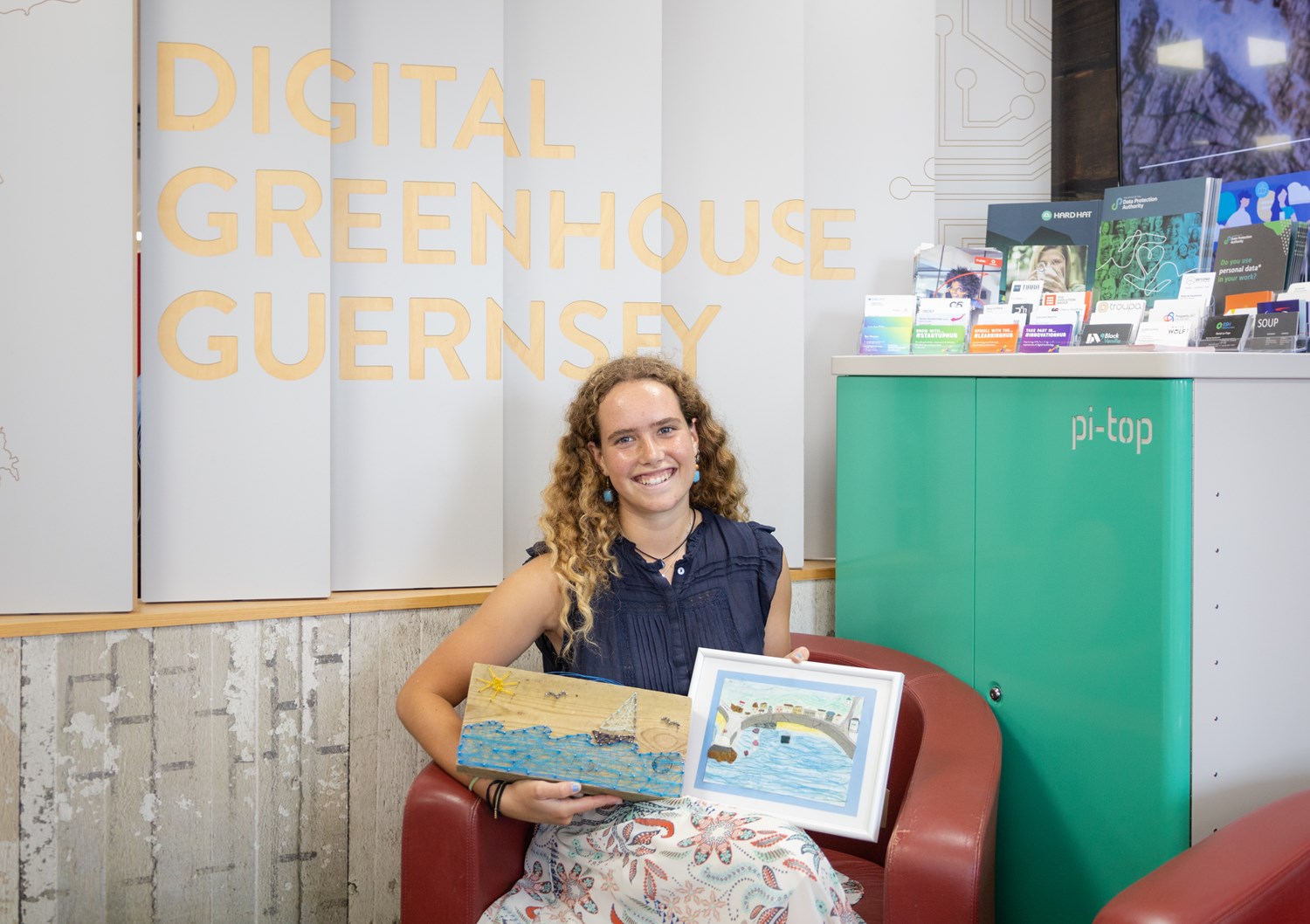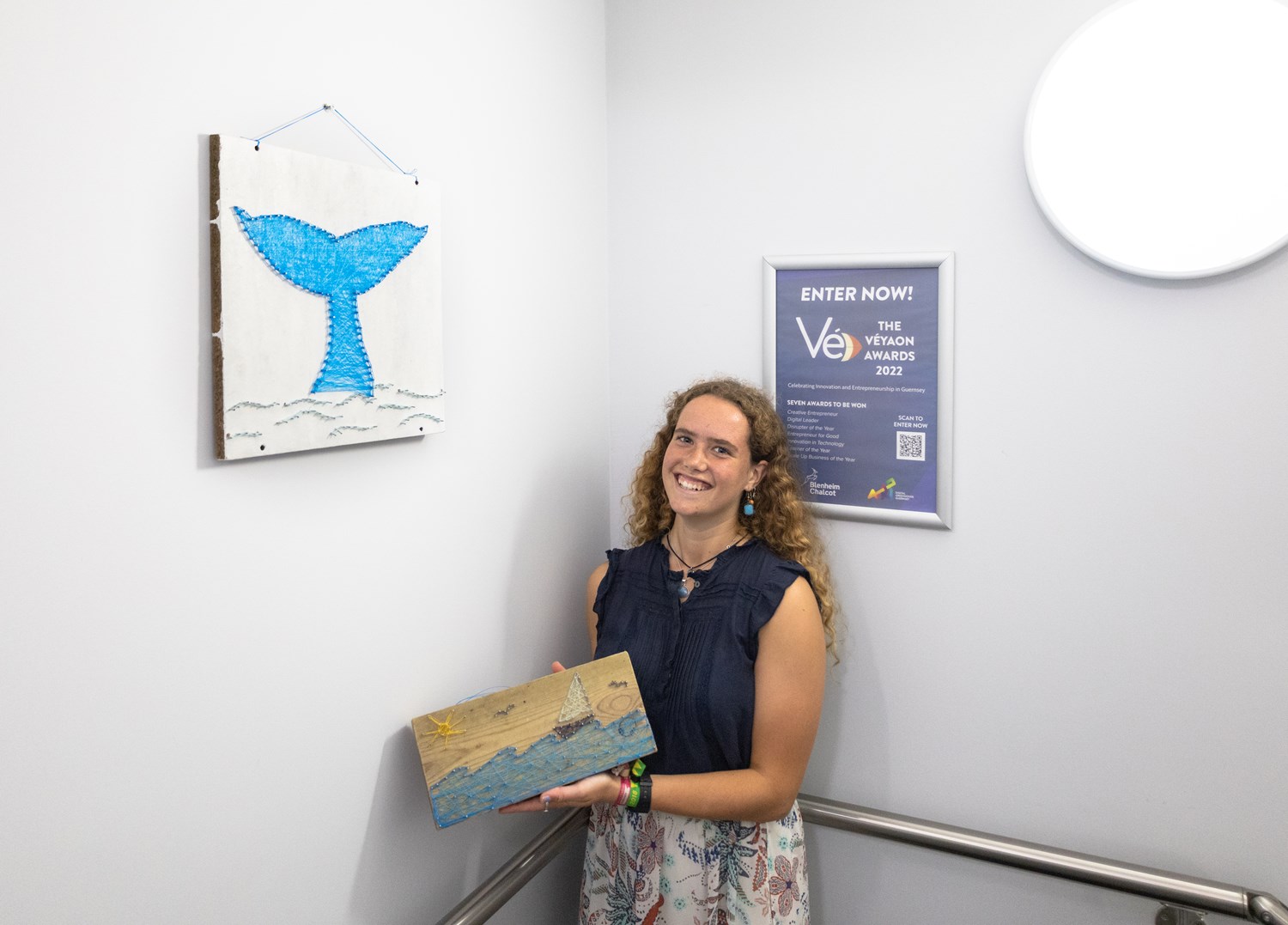Interview with climate activist Jenny Thomas
At The Digital Greenhouse, we have welcomed a new local artist to display her work in the space.
Here we take a look at the work of local sustainability activist, Jenny Thomas. Her work, made literally of rubbish washed up on the beach is full of purpose and intent to make a positive impact on this world.
Read more about her inspirations and aspirations in our interview below.

"Ultimately, large-scale change is only going to come from systemic change and a social paradigm shift towards environmental consciousness which really does stem from accountability from individuals."
Jenny Thomas, Climate Activist
How does the space at the Digital Greenhouse best suit your work?
I started creating in an attempt to connect people to the issue of ocean pollution and try to inspire small lifestyle changes in those that follow my work. I love the connectivity opportunities that the Digital Greenhouse provides and it's exciting to have a physical platform to display a few of my creations.

What are your top tips for someone who wants to make a positive impact on climate change today?
Stay positive yourself. It’s so easy to get overwhelmed by all of the large-scale, negative impacts of climate change that we are seeing and experiencing, it is a really scary situation! However, I have learnt that being angry doesn’t help; if you really want to have an impact you’ve got to actually believe what you’re doing is helping even just a little bit! I think this hope can come from learning about the positive news (easily accessible via podcasts, social media and mailing streams!) to lean into climate optimism and remind yourself that actions are making a difference on a large scale.
I think it’s important to recognise the power of the individual as a consumer, citizen and voter in elections. It’s easy to question the point of small lifestyle changes when learning about the great negative impact people/organisations of influence are creating. Ultimately, large-scale change is only going to come from systemic change and a social paradigm shift towards environmental consciousness which really does stem from accountability from individuals.
Educate yourself. Be conscious of which businesses and politicians you support. Then educate others and share the impact. A good way to get informed is by engaging in media - for example, I have found podcasts to be a useful tool in educating people about climate change.
Jenny's top 3 recommended climate podcasts
- The Circular Economy Show, by the Ellen MacArthur Foundation
- 39 Ways to Save a Planet, by BBC Radio 4
- The Climate Question, by BBC World Service
Top 5 tips on how you can help climate change
Reduce meat consumption
This is often regarded as the single best thing you can do to minimise your climate impact as an individual. Animal agriculture is having detrimental impacts on the environment; accounting for 70% of deforestation in the Amazon rainforest, it is responsible for large scale biodiversity loss as well as generating nearly 15% of global greenhouse gas emissions. Reducing your own meat consumption and being mindful of where your meat comes from will help to reduce the demand for such practises.
Use active/shared travel as much as possible
Road traffic accounts for one fifth of UK emissions every year. Driving less can help to directly reduce emissions as well as minimise traffic on the roads. Along with the environmental benefits, active and shared travel have social and physical benefits too, aiding productivity and boosting serotonin levels!
Use what you have and if you need to buy something new-to-you try looking for a second hand option
Reduce before reuse before recycle! Buying second hand will not only save you money but also help to reduce both your carbon and water footprints significantly. Using resources such as repair cafes can also help to maximise the quality and lifespan of items that you already have.
Question the source and lifespan of items that you buy
Do you realllyyyyy need that new bag? How many times are you going to where that dress? Overconsumption is promoting detrimental streams such as fast fashion and mass production which have massive environmental and social implications as well as producing a lot of waste! Questioning a products source and lifespan can aid a shift towards more conscious consumerism which can help to reduce support for industries that are having such a negative impact on the planet and communities.
Use bars not bottles! Eg, for soap, haircare, washing up liquid - there are so many options!
An easy sustainable swap! Bar products are just concentrated versions of those that we buy in bottles. Over 3/4 of a bottle of shampoo is water so why not buy a bar and add the water yourself! Bar products last longer and have zero waste, allowing them to be more sustainable than their bottled alternatives. Bars are also often made from more natural ingredients that are better for you and the environment (although this is brand dependent!).


